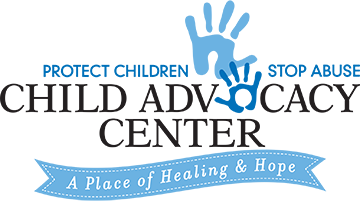
Fostering Resilience and The Role of Nurturing Communities
Childhood should be a time of learning, growth, discovery, opportunity, and safety. From conception through early adulthood, children benefit when nature, families, and environments positively intersect to ensure healthy growth and development. Nurturing families and communities contribute to the odds that developmental, behavioral, emotional, and other pathways significantly increase successful adult living. Unfortunately for some, having all these pieces of the puzzle in place does not happen. A variety of challenges confront families and children. For those with strong foundations and support systems, adversity often results in positive adaptation and coping. This is one definition of resilience. We can never avoid all problems; yet we can learn, grow, and adapt when we have the necessary tools and supports in place to tackle them. For others limited by a range of factors or facing persistent trauma, adversity accumulates and increases the odds that things might not turn out so well later on.
Each year the month of May presents opportunities to raise awareness about the importance of positive mental and behavioral health functioning in achieving healthy child and family development. These activities in part emphasize efforts to change norms and beliefs about asking for help before problems become severe. Unfortunately, many still see mental or behavioral health problems as stigmatizing, consequently contributing to their avoiding reaching out for help. Many quietly suffer and/or buckle under the weight of repeated, sustained trauma. Children that experience sexual and severe physical abuse often deal with extreme stigma and emotionally traumatizing impacts in quiet, desperate patterns. We know, however, that open and brave conversations can save lives, and change the course of potentially negative child development outcomes. The American Hospital Association distributes several excellent resources geared toward normalizing language, conversations, and beliefs associated with how people discuss various issues. The posters highlight effective ways to converse about mental and behavioral health, substance use, discrimination and race/racism, destigmatizing language about suicide, using people-first language, etc. It is important to understand that nurturing communities and families actively encourage proactive discussions in these areas to engage supports and services, not only to address immediate (and sometimes life threatening) crises, but to instill ongoing value in supporting one another no matter the origin or nature of a problem, or the circumstances surrounding families and children.
Communities that come together offering positive messages, initiative-taking outreach, responsive services, and nonjudgmental relationships foster opportunities for adaptive and resilient coping when serious challenges arise. These communities see value in resilience and work toward helping children and families achieve it, overcoming adversity in the process. Families feel connected and engaged in such places. They sense that others may have (or had) similar problems and can rely on each other to navigate through tough times. Nurturing parenting resources such as Cumberland County Health Department’s Positive Parenting Program (e.g., “Triple P”) are great examples of these kinds of positive, resilience-focused tools. Triple P normalizes asking for help under “typical” parenting circumstances; when things become seriously problematic, Triple P has gradually tailored interventions designed to improve parent-child interactions and reduce potential problems such as child maltreatment, injury, or even worse. There are multiple other supportive family and parenting resources in the county. The Partnership for Children hosts information about an array of child and family support resources programs. Of particular interest is a newer partnership they have with Family Connects International – a home visiting program proven to strengthen mothers and families while potentially warding off serious negative outcomes. The Child Advocacy Center offers Darkness to Light, a community-wide training in the recognition and prevention of child maltreatment – focusing on adult recognition of the warning signs associated with child sexual abuse.
These are but a few examples of many Cumberland County and community-centered opportunities to foster connections, resources, and family supports. There are many more locally available and accessible via the Internet. Resilient, helpful, de-stigmatizing communities do these things – they understand that all families require help at one point or another, and there is nothing negative or wrong with asking for assistance. In fact, it’s normal to seek advice and support from others. For example, we do it in faith community settings, and informally as we come and go as we engage in various family-based activities. We may even ask a co-worker for advice or ideas to problem-solve things at home. Let’s lean in and amplify this message of “it’s ok to seek help” together. By supporting each other and our children, we can offer a less adverse world for our children while also creating a safety net of supports when challenges arise.
